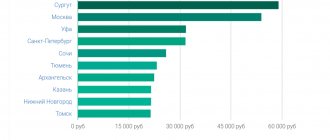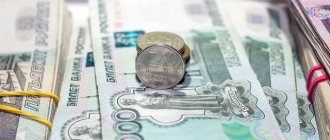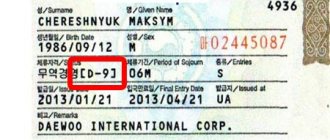Despite the importance of the profession and the by no means low requirements for those hired, the salary of a teacher at present (for winter-spring 2020) is still quite low (average salary 22 thousand rubles per month).
The problem has worsened over the past few years, as the salaries of child care workers have not been discussed or increased. However, judging by the latest news, a gradual increase in the salary of kindergarten teachers (civil servants) is expected in 2021, namely based on the results of the first quarter from April 1 of this year.
The average salary of a preschool education specialist is equal to the average salary in the region of work. Naturally, the figure varies depending on the location, therefore, it is very inaccurate (in large cities and wealthy regions - 25 thousand rubles, administrative centers - 8-10 thousand rubles). Since 2021, the salary of a teacher has increased (the increase was about 7%).
Salary of kindergarten teachers in the regions and Moscow
Today, a preschool teacher is a fairly in-demand profession on the labor exchange. However, it is difficult to find good personnel for the position at the current salary level (the average ranges from 4 to 25 thousand rubles).
Teacher salary table in some cities and regions in 2021:
| City, region | Minimum | Maximum |
| Moscow | 14000 | 42000 |
| Petersburg | 7000 | 40000 |
| Kazan | 9000 | 23000 |
| Novgorod | 14800 | 22000 |
| Irkutsk | 18000 | 24000 |
| Primorsky Krai | 8000 | 19000 |
| Tyumen | 18000 | 26000 |
| Ekaterinburg | 16000 | 19000 |
| Chelyabinsk | 17000 | 21000 |
In small towns, the average salary of a teacher is 10,000 rubles.
The salary for an assistant teacher is significantly less (in a kindergarten in Moscow about 5.5-18 thousand rubles, in St. Petersburg from 7 thousand rubles). Salary in the Kirov region is 5,600 rubles, in the Krasnodar region – 7,500 rubles. In private kindergartens, the salary of teaching assistants can reach 21 thousand rubles.
The deputy head of the Navy receives a decent salary in Moscow (35,000 rubles) and the capital region (32,500 rubles). Next in terms of salary level are Kirovsk and the Magadan region.
According to data from the end of 2019 to the beginning of 2021, senior educators earn:
- 13-24.7 thousand rubles. – 43.7% of employers;
- 1.3-13 thousand rubles. – 31.1% of employers;
- 24.7-36.4 thousand rubles. – 19.9% of employers.
A high percentage of earnings in Russia for teachers in a boarding school (average salary is 27 thousand rubles). For night shifts they are given a 20% bonus. If a shift extends for more than 10 hours a day, then labor is paid twice as much.
However, the salary of kindergarten and preschool teachers, regardless of length of service, is still lower than the salary of school teachers.
So, the lowest pay is for an assistant teacher, and the highest is for a senior teacher and a qualified employee of a private kindergarten. The minimum salary is 8-10 thousand rubles. It is guaranteed to secondary education specialists with little work experience. Experienced teachers with more than 5 years of experience are paid about 40-45 thousand rubles.
Teachers' salaries in 2019
The constant increase in the severity of work and responsibility of preschool teachers, in the absence of financial motivation, creates a problem associated with a shortage of qualified personnel.
If wages do not increase in 2021, most citizens may face the problem of registering their child for kindergarten due to a lack of places. Because young professionals prefer more promising areas, while experienced educators go to commercial structures and completely change their profession.
In 2021, the President of the Russian Federation gave the government appropriate instructions, calling on them to correct the situation in one of the most important clusters of pedagogy.
The average salary should be increased in 2019 due to:
- regular (once a year) indexation of teacher salaries;
- changes to the payroll system as a whole;
- reducing the queue to preschool educational institutions;
- reducing the load.
But it should be understood that wages cannot be brought to the desired level only through indexation in 2021.
Also, one should not discount the existing difference between the income of workers employed in the capital and those working in the regions. The average salary in 2021, as in the year before, for those working in Moscow is 28,000 rubles, while regional teachers of preschool educational institutions receive about 14,000 rubles per month.
Moreover, the salary in 2021 will be much higher than the income of assistants and housekeeping workers serving the educational institution. The so-called “nannies” hope for an increase in their salaries if the salaries of teachers increase.
The size of salaries directly depends on the region in which the teacher works
However, if you turn to Rosstat for data, the situation looks more than optimistic. The agency calculated the average salaries of educators in the Russian Federation and came up with fairly high figures for most regions.
Examples of salaries depending on region
- in Adygea, the average salary of a teacher is 20,082 rubles;
- in Kalmykia, preschool workers are paid 20,367 rubles;
- in Crimea, the work of a teacher is estimated at 24,364 rubles per month;
- kindergartens in the Krasnodar Territory pay their employees an average of 26,821 rubles;
- in the Astrakhan region, teachers receive 23,081 rubles;
- in Volgograd - 25119 in national currency;
- in Rostovskaya - 22,669 rubles;
- in Dagestan, the level of remuneration for teachers is one of the lowest in the Federation - 17,644 rubles;
- in Ingushetia, the work of a preschool teacher is valued at 20,730 rubles;
- in Karachay-Cherkessia - 19,483 rubles;
- in Kabardino-Balkaria – 19,664 rubles;
- Ossetian teachers are entitled to an average of 20,439 rubles per month;
- in Chechnya – 19,557 rubles;
- preschool teachers in the Stavropol region receive 22,261 rubles;
- in Bashkortostan - 25,223 rubles;
- in the Republic of Mari El – 20,109 national units;
- in Mordovia – 20688 in national currency;
- teachers in Tatarstan receive 26,913 rubles monthly;
- in Udmurtia the average salary is 25,238 rubles;
- in Chuvashia – 22,106 rubles;
- in the Perm region - 28,250 rubles;
- in the Kirov region - 20,573 rubles;
- teachers in the Nizhny Novgorod region are paid 27,524 rubles monthly;
- in the Orenburg region - 22,949 rubles;
- in the Penza region - 25,247 rubles;
- educators in the Samara region are awarded 27,561 rubles;
- in kindergartens in the Saratov region, the average salary reaches 20,823 rubles;
- the salary of teachers in institutions of the Sverdlovsk region looks decent - 30,219 rubles;
- The Tyumen region is characterized by very good wages. Here, as in other regions with a northern coefficient, kindergarten teachers are awarded a considerable amount of money - 53,638 rubles;
- in the Khanty-Mansi Autonomous Republic - 54,492 rubles;
- teachers in the Yamalo-Nenets District are paid 71,516 rubles;
- in the Tyumen region - 38,676 in national currency;
- in Altai – 22,776 rubles;
- in kindergartens of Buryatia - 28998 in national monetary units;
- in Khakassia – 25,549 rubles;
- in Transbaikalia - 26,704 rubles;
- in kindergartens of the Krasnoyarsk Territory they charge an average of 32,593 rubles;
- in the Irkutsk region - 30,773 rubles;
- in the Novosibirsk region - 27,887 rubles;
- in Kamchatka - 60,151 rubles;
- in the Khabarovsk Territory - 36,015 rubles;
- in Chukotka - 75,425 rubles.
Reform
Changes planned for 2021 – in numbers
At the moment, we can only talk with confidence about increasing wages as part of the minimum wage reform, which involves equalizing the “minimum wage” and the subsistence level. Also, the salaries of teachers in 2021 will increase due to an annual 4% indexation.
Another salary increase is expected, bringing it to 150% of the national average income. Another expected event is an increase in the minimum wage to a ratio of 1/1 (100%) to the subsistence level.
As prospects, we can consider statements by officials of the Ministry of Labor and Social Security related to the upcoming budget reforms. It is reported that the salaries of teachers in 2021 will be increased after the application of new standards, including:
- abolition of a number of categories existing in the current tariff schedule. Currently, accruals for educators and teachers in general are made taking into account one of 27 categories. Officials propose to retain only 17 of them and create groups based on professional qualifications, in accordance with which the salaries of educators will be calculated in 2021 and beyond;
- increasing the salary to the minimum wage. From June 2021, the “minimum wage” is 11,163 rubles, and from January 2021 it is planned to be indexed. Thus, the salaries of teachers in 2021 will increase in proportion to the increase in the minimum wage;
- abandonment of most of the existing federal surcharges of insignificant size in favor of the introduction of professional-industry tariffication mechanisms. From 2021, the amount of premiums will be regulated at the local level;
- indexation of wages taking into account the inflation rate. In 2021, the rule for calculating salaries is in force, taking into account the 80% ratio to the subsistence level; the salary of educators in 2021 will be calculated in a ratio of 1:1 (100%) to this indicator. Also, in the new year, the government must report on the implementation of presidential decrees issued and approved in May 2021.
Of course, indexation will not be able to radically solve the problem, because it will raise the salary of an individual teacher by only 4% (approximately 200-500 rubles).
But this will be only the beginning of the changes announced by representatives of the Ministry of Labor and Social Protection of the Russian Federation.
Abbreviations
The experience of “optimization” in other budget areas gives educators justifiable fears about future cuts.
The dismissal of a number of employees and the distribution of their responsibilities among those remaining on staff makes it possible to increase salaries without leaving the framework of the established payroll. Meanwhile, experts believe that wholesale layoffs will not be initiated, citing facts such as:
- lack of qualified personnel in this area;
- previously carried out optimization of personnel;
- active implementation of a project to reduce queues, within the framework of which new kindergartens are being opened in many regions.
In addition, in connection with the government program aimed at reducing queues at kindergartens, it is planned to open new preschool educational institutions, which will need to be provided with qualified and experienced specialists.
Teacher's salary abroad
Abroad, a preschool education specialist is a respected profession. There is always a competition for a vacant position from a large number of applicants. However, the requirements there are high: at a minimum, higher specialized education. At the same time, the level of income of teachers abroad far exceeds Russian salaries:
- USA salary for a teacher is $23-35 per hour.
- Germany, France – from €4550 to €15700 per month. Beginner specialist – from 2500 €.
- Canada – $21-43 per hour.
- Croatia – from 13,500 HRK (€1,806.94) to 46,300 HRK (€6,197.13) per month.
- Hungary – from 654,000 HUF (€1,932.69) to 2,230,000 HUF (€6,590.04) per month.
- Poland – from 9090 PLN (€2097.61) to 31000 PLN (€7153.56) per month.
- Czech Republic – from 35,100 CZK (€1,378.74) to 121,000 CZK (€4,753.27) per month.
- Portugal – from €1630 to €5200 per month.
Indexation and “May Decrees”
Indexation is an adjustment of the level of wages due to rising inflation to compensate for the material costs of society. In accordance with the Decree of the President of the Russian Federation of 2012 No. 597 (“May Decrees”), the salary of budget employees of preschool education will increase by 50%.
The plan for indexing the salaries of teachers, planned in 2012, has not been completed by the beginning of 2021, so its implementation is scheduled for the end of the same year.
The government has set the following tasks:
- shorten the queue at kindergarten;
- index the salaries of teachers and their assistants.
Indexation will not significantly alleviate the situation, since it will raise the payment of a specific employee by 4% (100-500 rubles)
However, they further want:
- change the outdated 27-bit tariff schedule to an improved 17-bit one. To achieve this, professional qualification groups will be divided in a new way;
- connect the basic salary of a preschool specialist with the living wage;
- increase wages by 80%;
- entrust local governments with the ability to tariff wages.
Average salary of preschool workers
Not everyone can become a kindergarten teacher. This profession requires specialized education in the field of pedagogy and preschool psychology. Upon completion of training, a person is awarded a diploma with the qualification “educator”, and he can go to work in a kindergarten. If a specialist with a diploma has not worked in the specified position for a long time, he should undergo recertification before being hired.
The teacher's work schedule is 5 working days with 2 days off. The work takes place in shifts, since 2 teachers work for 1 group - one teacher works from morning until lunch, the second from lunch until evening. To understand what a teacher’s salary is made up of, it is necessary to formulate what is required of a kindergarten teacher.
The list of professional requirements is as follows:
- specialized education;
- responsibility for the health and life of the child;
- the ability to resolve conflict situations between children and create a favorable atmosphere in the group;
- maintaining reporting documents;
- first aid skills
According to Rosstat, the average salary of teachers in the field of preschool education, according to the latest data, is 29 thousand rubles, or 88% of the average salary in the field of education.
The salary of teachers includes several parts. First, there is the base salary, which makes up the bulk of the income. Next comes the so-called bonus part, which directly depends on the quality of the teacher’s work. To increase bonus accruals, it is necessary to hold various events with parents, participate in various city competitions and exhibitions.
Job responsibilities
A comfortable stay for children, the organization of the educational process is possible thanks to the united work of the command staff: the head, senior and junior teachers, music teacher, speech therapist, psychologist, physical education teacher, cooks, nurse, caretaker.
The main job responsibilities of a teacher:
- babysitting;
- care and ensuring a safe stay throughout the kindergarten;
- maintaining discipline and observing the regime by children;
- development and provision of teaching materials and educational games for conducting classes;
- awareness of the health status of wards;
- ability to communicate successfully with children.
It is possible to become a teacher after receiving specialized secondary education in the following specialties: psychology, preschool education, pedagogy. A potential employee must be literate, be able to express his thoughts out loud and on paper, follow hygiene rules, and comply with regulations for the protection of children.
There are public and private kindergartens. They differ in payment per month and in organizational terms. Children over 2 years old go to state kindergarten. In private you can meet a child from 1 year old. Such institutions are perfect for parents who want to start earning money again as soon as possible, but have no one to look after their child.











